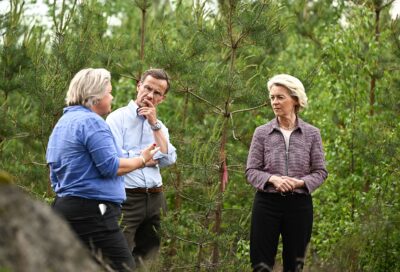Poland’s Northern Policy and Nordic-Baltic Cooperation
The Nordic-Baltic Eight (NB8) represents a dynamic model of regional cooperation that has united the five Nordic and three Baltic states in security, development and solidarity efforts since the 1990s. The evolution of NB8’s areas of cooperation – from supporting the Baltic states’ post-Soviet transition to current priorities like defense policy, cybersecurity, and energy...
More →




